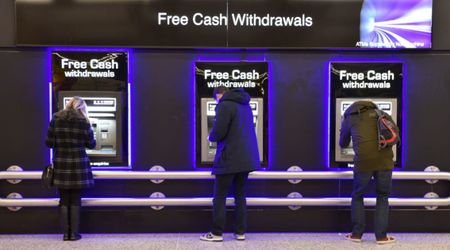From Free to Fee: 5 Everyday Essentials That Now Cost You

5 Freebies That Now Come With a Price Tag

With inflation hitting all-time highs, the cost of essential goods is on the rise. Yet, what's truly remarkable is the shift in items that were once freely available but now come with a price tag. From a few cents to significant charges, many necessities have transitioned from free to commercialized products.
1. Drink Refills

Once a complimentary service at many dining establishments, drink refills now often come at an additional cost. In the past, patrons could enjoy unlimited refills of soft drinks, tea, or coffee without extra charges. However, as businesses seek to boost profits and offset expenses, refill policies have evolved. Many restaurants and cafes now charge for each refill, either as a separate item on the bill or by incorporating it into the initial drink price.
2. Water

While tap water remains free in most places, the rise of bottled water culture has introduced a new dimension to the cost of hydration. Many establishments now charge for filtered or flavored water options, presenting them as premium alternatives to tap water. Water refill stations and filtered water dispensers in public spaces often require payment or membership for access. As a result, what was once a freely available resource has become a product with a range of price points and consumption options in the modern marketplace.
3. Extras at Airplanes

Previously, airlines commonly offered complimentary extras such as meals, beverages, and in-flight entertainment to enhance the passenger experience. However, as airlines seek to optimize revenue streams and adapt to changing consumer preferences, these items have become monetized. Today, passengers have the option to purchase upgraded meals, alcoholic beverages, and premium seating options. Moreover, amenities like blankets, pillows, and headphones may now be offered for a fee or included only in higher-fare classes.
4. Air

Previously, motorists could freely access air pumps to inflate their tires to the recommended pressure levels. However, as operating costs and maintenance expenses have increased, many service providers now charge a nominal fee for air-filling services. This shift has led to the emergence of self-service air stations where drivers can pay for air using coins, tokens, or credit cards. Some gas stations even offer air as part of a package deal with fuel purchases or provide it for free to customers who have joined loyalty programs. Despite these changes, certain jurisdictions mandate that gas stations offer free air to customers, but enforcement of such regulations varies.
5. ATM Service

While some banks still provide certain ATM services free of charge to their customers, others may levy fees for transactions such as cash withdrawals, balance inquiries, fund transfers, and deposits. ATM usage fees may also apply when customers use machines that are not affiliated with their own bank or network. Furthermore, technological advancements have led to the introduction of enhanced ATM features, including cardless withdrawals, mobile banking integrations, bill payments, check deposits, and currency exchange capabilities. While these innovations offer increased convenience and accessibility, they may come with associated costs or restrictions.
























